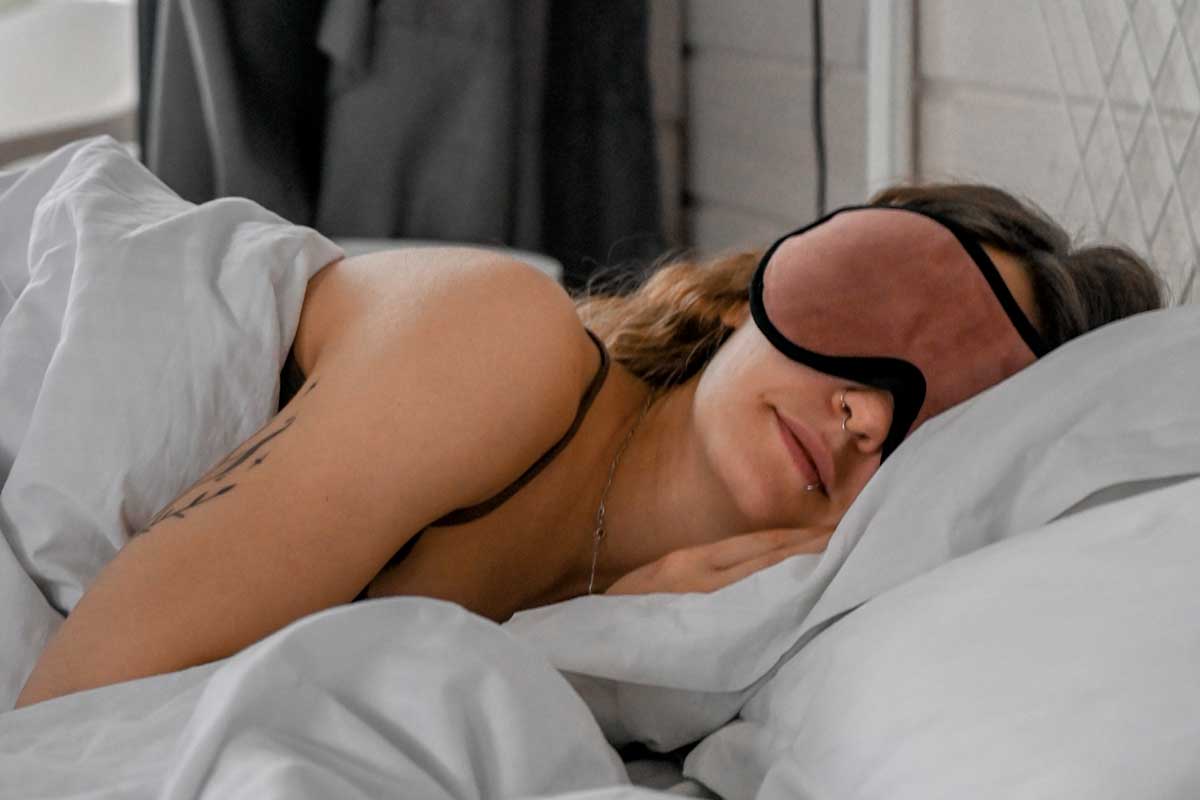Advertisement
Waking up to the Reality of Sleeping Pills
Alternatives for safe, natural sleep

Sleep has long been an underappreciated determinant of health. It’s often the first thing cut from our crammed and overflowing routines. Sleep quantity and quality, however, affect many seemingly divergent areas of health, including hormonal and metabolic health; it’s also an essential prerequisite for normal daily functioning.
Advertisement
When we don’t get enough
Sleep disorders including insomnia can develop for a variety of reasons, such as anxiety or depression, substance abuse, hormonal imbalances such as thyroid disorders or menopause, overweight or obesity, and sleep apnea.
A sleep disorder may be a wake-up call to address a more serious issue. Chronic sleep deprivation is linked with increased risk of heart disease, obesity, immune dysfunction, hormonal imbalances, and even cancer.
Advertisement
Health risks of common sleep meds
An alarmingly large percentage of the population relies on various sleep medications, but may be unaware of potential risks associated with their use, including dependency.
Advertisement
Benzodiazepines
The most common sleep medications are the older class benzodiazepines such as lorazepam (Ativan), alprazolam (Xanax), and diazepam (Valium), and the newer benzodiazepine-like drugs (“Z-drugs”) zopiclone and zolpidem.
These drugs are all associated with risk of dependency and need to be used carefully in conjunction with other medications, especially opioids and alcohol, which can result in oversedation and even death.
Recently, the US Food and Drug Administration (FDA) updated labelling requirements for all benzodiazepines due to “serious risks of abuse, addiction, physical dependence, and withdrawal reactions” which are common problems of benzodiazepine use even when only used regularly for days to weeks, and even at approved doses.
Acute withdrawal can lead to seizures and even death, so these drugs need to be tapered slowly with medical supervision. Benzodiazepine use is also associated with increased risk of falls and injury in the elderly, as well as increased risk of pneumonia, because sedation leads to altered respiration.
Advertisement
Z-drugs
Although they are newer and we don’t have as much long-term data, many of the same precautions that apply to benzodiazepines also apply to the Z-drugs.
Clinically, my colleagues and I continue to see dependence as a main problem associated with the Z-drugs, although this is less documented in the literature. Recently, the FDA issued a warning related to potentially dangerous complex sleep behaviours such as sleepwalking and sleep driving that have developed in patients on these medications.
Advertisement
Safe natural sleep alternatives
There are several natural health products with good safety profiles that may be helpful for those suffering from insomnia. Some of these include melatonin, magnesium, and valerian or passionflower.
Advertisement
Melatonin
One of the best-studied natural agents, melatonin has been shown to improve sleep parameters including sleep latency and total sleep time without significant side effects in several systematic reviews and meta-analyses. Melatonin secretion may be altered among people with altered sleep/wake schedules, such as shift workers and the elderly; melatonin supplementation may help correct this.
Advertisement
Magnesium
A relaxing mineral found in the muscles and the nervous system, many people find magnesium supplements helpful for promoting sleep. Magnesium supplementation has been shown to reduce sleep latency and increase total sleep time.
One study has shown that magnesium supplementation may reverse some of the age-associated changes in sleep architecture as well as the nocturnal secretion of certain blood pressure-regulating hormones.
Advertisement
Valerian and passionflower
These mild sedative herbs have a long history of use for anxiety and insomnia. Constituents in these herbs bind to GABA receptors in the brain, exerting calming, inhibitory effects.
A recent study evaluated the effect of approximately 530 mg of valerian taken over 30 nights on sleep by 72 coronary bypass patients, and found improvements in total sleep quality, sleep latency, sleep duration, sleep efficiency, and daytime dysfunction compared to placebo.
A similar study found that passionflower extract increased total sleep time in patients with insomnia in a two-week sleep study.
Although sleep disorders are quite common, the current pharmaceutical options have considerable drawbacks. It seems reasonable for people to try the safe and effective natural options first.
Patients should consult a licensed health care practitioner for personalized advice regarding the use of natural health products as well as addressing the root cause of your insomnia. Do not stop the use of prescription medications without consulting your medical doctor.
Helpful herbal teas for sleep
· camomile
· lavender
· lemon balm
· passionflower
· valerian
Sleep—perchance
In a recent survey of 2,000 Canadians, 13 percent reported experiencing insomnia at least three nights per week in the previous month, and 10 percent had used prescribed medications for sleep in the previous year, while 9 percent used natural products, and 4.6 percent used alcohol.
The costs of insomnia
In a 2021 study, the economic burden of insomnia was estimated at $1.9 billion per year in Canada. This includes direct costs of health care and lost productivity due to early mortality from chronic diseases attributable to insomnia symptoms, including diabetes and depression.
This article was originally published in the November 2023 issue of alive magazine.





